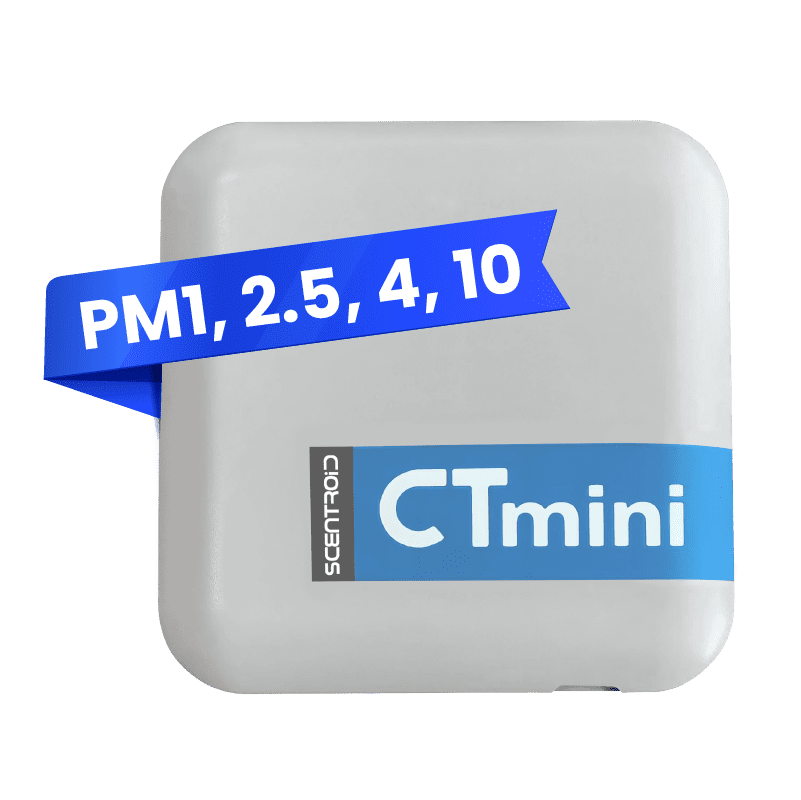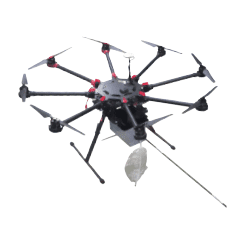Understanding
Particulate
Matter
PM1/PM2.5/PM4/PM10
Particulate matter consists of airborne particles in solid or liquid form that are tiny enough to be inhaled and cause serious health problem. Particulate matters are classified into 4 classes based on the diameter of the particles (micrometers (µm)): PM10, PM2.5, and ultrafine Particles (100 nanometers). The size of particulate matter is crucial because it influences how deeply the particles can penetrate the respiratory system and what health effects they may cause. The cause of particulate matter pollutants comes from a variety of sources, wildfires, dust storms, human-made sources including vehicle emissions, industrial processes, construction activities, mining operations, waste burning etc.

Advanced Particulate Matter Monitoring
Scentroid CTmini with Particulate Matter Monitoring is engineered for unparalleled accuracy in detecting and measuring a wide range of airborne particles, including PM1, 2.5, 4 and 10.
- Powerful Particulate Matter Analyzer
- Using a patented multi-beam laser counter and heated sampler for measurement
- 98% accuracy even in extreme weather conditions based on independent studies
Scentroid's SIMS3 for
Real-Time Reporting and Analysis
Seamless Data Integration and Visualization

Connect to SIMS3
Connect your Scentroid CTmini to the Scentroid Sensor Information Management System (SIMS3) for comprehensive data management.

Visualize Data
SIMS3 provides live feed monitoring, enabling you to visualize Particulate Matter levels in real-time.

Accessible Anytime
Access detailed reports, trends, and make informed decisions with our user-friendly interface.
Managing PM1, 2.5, 4 and 10 in
Industrial
Environments
Particulate Matter Monitoring Solutions
End-to-End Air Quality Management with Innovative Technology
From initial detection to detailed analysis, Scentroid offers a complete solution for particulate matter monitoring. Our integrated system ensures you have all the tools necessary to manage air quality effectively. Benefit from continuous data flow, automated reporting, and advanced analytics, all designed to support your air quality management goals.
Scentroid combines cutting-edge technology with years of industry expertise to deliver unmatched air quality monitoring solutions. Our commitment to innovation and quality ensures you receive the tools you need for effective PM management.
Transform Your Air Quality Monitoring
Get Started with Scentroid Today
Ready to enhance your air quality monitoring capabilities? Contact us today to learn more about the Scentroid CTmini and SIMS3, and discover how our comprehensive solutions can meet your specific needs. Join the growing number of organizations that trust Scentroid for their air quality and odour analysis requirements.


